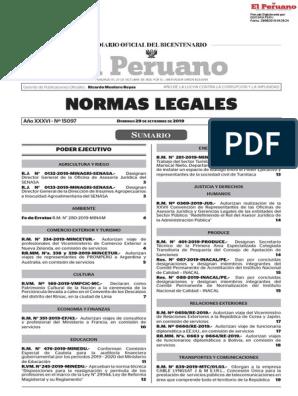A supplier of luxury products can prohibit authorized retailers from selling their products on platforms such as Amazon or eBay Legal News
This Wednesday, July 26, the conclusions of the General Counsel in case C-230/16 Coty Germany GmbH / Parfümerie Akzente GmbH have been made public. In them, it is proposed to the court of justice that it declare in accordance with community law the clause that prohibits authorized retailers from using third-party platforms (for example, EBay or Amazon) to sell certain "luxury and prestigious products".
This prohibition is intended to protect the luxury image of this type of product and is not considered included, provided that certain requirements are met, in the prohibition of collusive practices, since it can improve competition based on qualitative criteria.
This decision takes into account that currently the online stores of the distributors themselves constitute the preferred distribution channel for distribution via the Internet. Thus, despite the growing importance of third-party platforms in the marketing of retailers' products, the prohibition imposed on authorized distributors to use these externally recognizable platforms could not be assimilated to a total prohibition or a substantial limitation of internet sales.
We recall that the proposals of the Advocate General are not binding, so we will have to wait for the decision of the Court of Justice of the European Union on this matter.
Approach
Coty Germany is one of the leading providers of luxury cosmetic products in Germany. In order to preserve the luxury image of some of its brands, it markets them through a selective distribution network, made up of authorized retailers whose establishments must respect certain requirements relating to the environment, equipment and facilities. Authorized retailers may also offer and sell the products covered by the contract on the Internet. As a result of a modification introduced in 2012, the distribution contracts condition such power on the fact that the sale on the Internet is made through an "electronic shop window" of the authorized establishment and that the luxury nature of the products is respected. Likewise, they expressly prohibit the authorized retailer from the recognizable use of unauthorized third-party companies for the sale of the contractual products on the Internet.
Parfümerie Akzente has been distributing Coty Germany products as an authorized retailer for many years, both in its stores and on the Internet. Part of its Internet sales are made through its own online shop and part of it through the "amazon.de" platform. Following Parfümerie Akzente's refusal to approve the changes made to the distribution contract in 2012, Coty Germany filed an appeal with the German courts to have the contract products prohibited from being distributed via the "amazon.de" platform. .

In this context, the Higher Regional Civil and Criminal Court in Frankfurt am Main puts various questions to the Court of Justice in order to determine whether the contested prohibition is compatible with EU competition law.
Conclusions of the Advocate General
In his conclusions, Advocate General Nils Wahl recalls, first of all, that the Court of Justice has already held that, due to their characteristics and nature, luxury products may require the implementation of a selective distribution system in order to preserve their quality and guarantee its correct use.
According to case law that is still valid, selective distribution systems aimed at the distribution of luxury and prestige products and aimed primarily at preserving the "luxury image" of these products ?as is the case of the Coty Germany system? are not included, in principle, in the prohibition of collusive practices, as long as they meet three criteria: a) the resellers are selected on the basis of objective criteria of a qualitative nature, set uniformly for all and applied in a non-discriminatory manner to all potential resellers, b) the nature of the product in question, including the prestige image, requires selective distribution in order to preserve its quality and ensure its correct use and c) the criteria required do not go beyond what is necessary.
As regards, more specifically, the disputed clause according to which Coty Germany prohibits authorized retailers from using externally recognizable third-party platforms for the Internet sale of contract products, the Advocate General is of the opinion that, in principle, such Nor can this clause be considered included in the prohibition of collusive practices, provided that a) it is conditioned by the nature of the product, b) it has been established uniformly and is applied indistinctly, and c) it does not exceed what is necessary. Ultimately, it is up to the Oberlandesgericht to check whether this is the case.
The Advocate General points out that, without prejudice to the verifications carried out by the court, it can be considered that the disputed clause does not fall within the prohibition of cartels.
As regards in particular the legitimacy of this clause, the Advocate General considers that the prohibition he establishes may improve competition based on qualitative criteria. Indeed, this prohibition can preserve the luxury image of the products in question in several respects: it not only guarantees that these products are sold in an environment that meets the quality requirements imposed by the head of the distribution network, but it also makes it possible to protect of parasitism phenomena by preventing other companies from benefiting from the investments and efforts made by the supplier and by other authorized distributors to improve the quality and image of the products in question.
The Advocate General emphasizes that, far from establishing an absolute ban on online sales, Coty Germany only requires its authorized distributors not to market the contracted products through third-party platforms, to the extent that, according to the head of the network, they are not obliged to respect the qualitative requirements that it imposes on its authorized distributors. In fact, the disputed clause maintains the possibility for authorized distributors to distribute the products covered by the contract through their own web pages. Likewise, it does not prohibit such distributors from using third-party platforms that are not externally recognizable for the distribution of said products.
On the other hand, it has been found that, in the current state of evolution of electronic commerce, the online stores of the distributors themselves constitute the preferred distribution channel for distribution via the Internet. Thus, despite the growing importance of third-party platforms in the marketing of retailers' products, the prohibition imposed on authorized dealers to use these externally recognizable platforms could not, in the current state of developments in the electronic commerce, be assimilated to a total prohibition or a substantial limitation of Internet sales.
As regards proportionality, in the opinion of the Advocate General there is nothing to conclude that, for the time being, the contested ban must be considered, in general, disproportionate in the light of the objective pursued. Notes, in particular, that compliance with the qualitative requirements that may legitimately be imposed within the framework of a selective distribution system can only be effectively ensured if the Internet sales environment is designed by the authorized distributors, who are contractually bound to the provider/head of the distribution network, and not by a third party operator whose practices are beyond the influence of said provider.
In the event that it is considered that the restrictions in dispute may be included, in principle, in the prohibition of collusive practices and that, in addition, they effectively constitute a restriction of competition, the Advocate General examines whether they could benefit from an exemption, in particular from a block exemption under Regulation No 330/2010.
In this regard, the Advocate General considers that the contested prohibition does not constitute a particularly serious restriction within the meaning of this Regulation, so that, in principle, it is not excluded that it may benefit from a block exemption. Indeed, in the opinion of the Advocate General, the contested prohibition constitutes neither a restriction on the retailer's clientele nor a restriction on passive sales to users.


